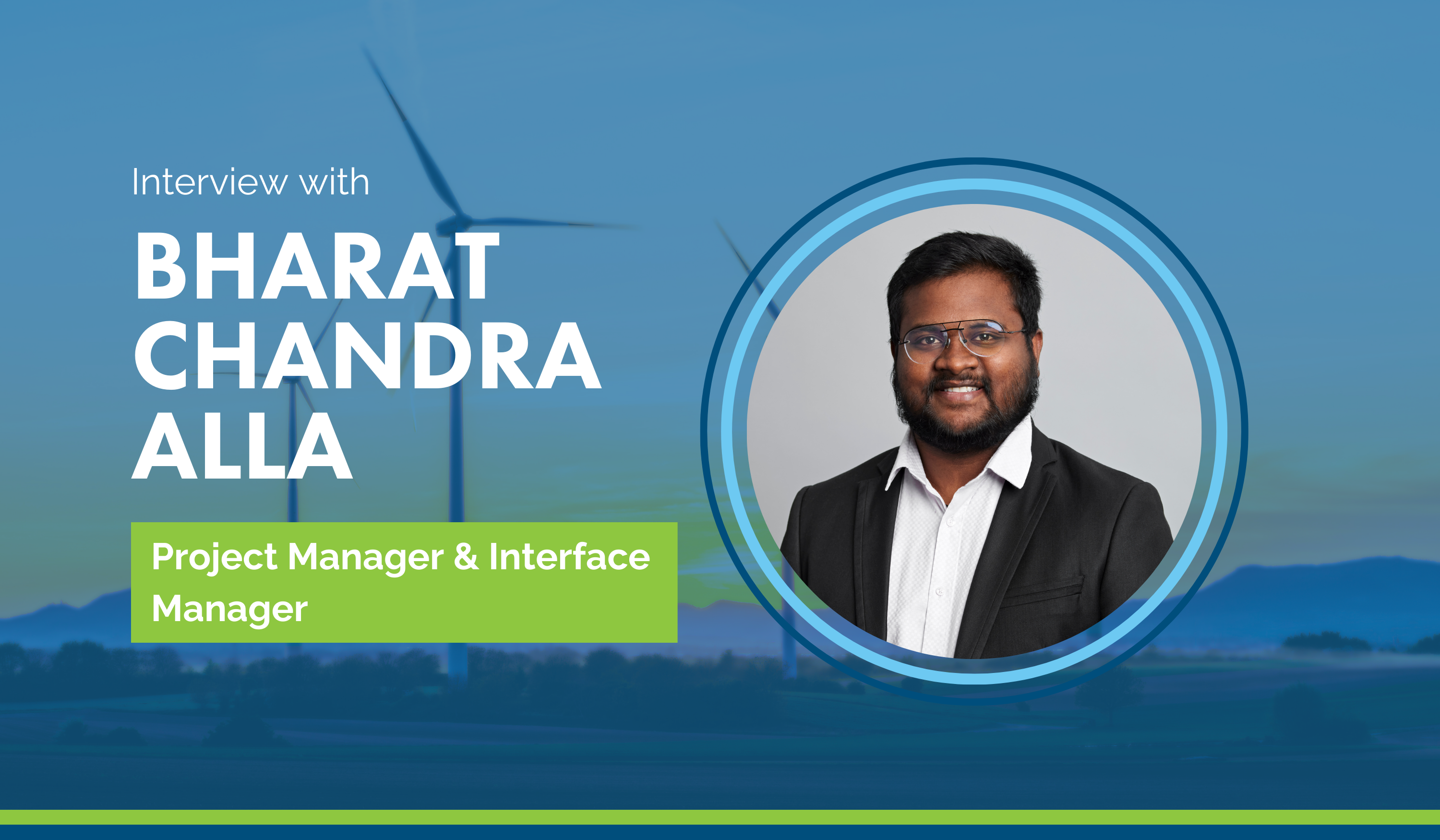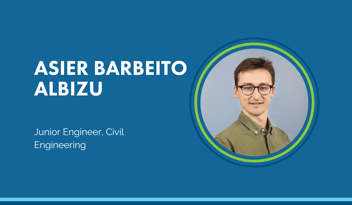
Global Consultancy, Global Cultures: Our International Teams
As an international consultancy in an increasingly interconnected world, we understand the need for cultural awareness and interconnected teams. Our teams are dispersed globally, bringing a broader perspective and experience to work. Naturally, this brings an exciting wave of new learnings and experiences too.
In this blog, we meet with Bharat Chandra Alla, a Project and Interface Manager within our Project Management Department. Bharat, who is originally from India, has previously lived around the world and recently moved to Seoul in South Korea for his new role.
Bharat manages the project development process for utility-scale offshore and onshore wind projects within K2 Management, collaborating with our clients on a global scale. Depending on the project scope and the client's needs, he brings strong project management skills and a holistic view of the development process.
In our recent chat, we explored how he is adapting to a new culture and environment as he settles into his new role in our South Korean office. And he gives us his top mindset tips for those considering taking a similar step.
A new horizon
“Living and working in another country is no doubt an experience that opens the door to a wide choice of work opportunities,” shares Bharat, when asked about how living in South Korea has so far influenced his perspective on work and life. “It is a life challenge and a good and direct way to learn a new language, become familiar with a new culture and test one’s adaptability.”
Since moving to K2 Management’s South Korean office in 2023, Bharat has made it his mission to ensure a smooth transition by jumping straight into all that Korean culture has to offer. As he notes, being genuinely interested in the culture has considerably helped his adjustment to his new environment. “As I was genuinely interested in learning about their culture, I feel I made fantastic connections with my Korean colleagues,” he adds. “In cultural intelligence terms this is called CQ Drive, which indicates the level of motivation and interest in engaging with different cultures. In my experience, this creates a greater connection with others.”
Bharat’s learnings, achieved by this approach, have already proven both effective and beneficial for him. Witnessing different values and things as simple as greetings between others has already influenced changes in his own communication style. “Even now, I am clearer and more concise in my emails, as well as attentive, responsive, and empathetic when listening to others,” he says. “For me, it took a lot of time to adjust to a new culture, which I did by getting to know others and simply observing, listening, and enquiring about my colleagues and their interests.”
Learning curves
It’s a well-known fact that small cultural nuances can impact team dynamics and decision-making processes in different locations. As Bharat notes, one of the most challenging aspects of working in a multicultural environment comes from deep-rooted differences in values and beliefs. However, his open-mindedness has aided his smooth transition to date, noting how by learning about Korean culture, values and beliefs, and “acknowledging the differences” in contrast to his own experiences, he has gained a greater understanding of his colleagues and their ways of working.
“For example, cultural nuances lead people to approach decision-making differently in a range of circumstances,” shares Bharat. “These nuances can also influence how others view opportunities versus threats, particularly in a working environment. Likewise, people also vary in terms of how much they wish to engage in decision making.”
Bharat notes there are many differences in communication style, particularly around conflict resolution. In some cultures, it is the norm to escalate sticking points further up the chain, but now, Bharat’s new working environment sees challenges constructively addressed earlier on between colleagues. With differences in language, style and tone now needing to be taken into account, Bharat notes how he is far more “clear and concise in written communication, and more empathetic when listening.”
He also tells us about how he’s adapted to local customs, explaining that “Understanding and adhering to Korean social norms, such as bowing when greeting others or using two hands when giving and receiving items, may take some practice for newcomers. That said, I have gained new customs, traditions and ways of thinking as a result of working with a diverse team. These have undoubtedly influenced both my professional and personal mindset.”
Now, the future and beyond
Moving to South Korea brought many adjustments which took Bharat some getting used to. “Personally, the transition to life in South Korea has been both exciting and challenging. On one hand, I've been fascinated by the rich culture, delicious cuisine, and vibrant energy of cities like Seoul. Exploring bustling markets, discovering hidden gems in traditional neighborhoods, and immersing myself in the beauty of Korean traditions has been incredible. However, adapting to the fast-paced lifestyle and grappling with the language barrier have presented their own set of challenges. Yet, with each passing day, I find myself growing more accustomed to my new life and finding my rhythm in this dynamic country.”
Now settled in his new role in Seoul, Bharat primarily acts as Project Manager & Interface Manager and also works in Advisor roles in the development and improvement of wind project assignments in the region. His main focus is offshore wind projects, and he coordinates a range of multidisciplinary professionals.
Moving to South Korea has provided him with the opportunity to get involved in the two most pivotal offshore wind projects that are having a substantial contribution to the country’s net zero goals. The move has provided him with new professional opportunities, and he looks to further develop his project management expertise in the next five years. "I would like to collaborate on more complex projects and learn from experienced professionals in the field,” comments Bharat. “I also plan to pursue a certification in PMI Course to streamline processes and deliver higher-quality results."
International futures
Bharat's successful integration into the Korean team is a testament to the profound value of cultural diversity in our global consultancy. The depth of experience gained through international teams enhances individuals' professional growth and contributes significantly to the overall success of our projects worldwide.
And Bharat is not the only one at K2 Management experiencing a new culture. Several employees have moved internationally over the years, with three Australian colleagues currently moving to the UK. Ultimately, our company's global reach is not just about geographical dispersion but also about fostering a diverse and inclusive work environment.
If you want to build a meaningful career within the renewable energy sector, visit our Careers page here:




